Would there be war in a woman’s world? How would men react to our decision to start a war? Would we have so many wars if women ran the world?
War is not a female story. The stories of wars are mainly about men’s heroism and losses. Stories and songs are dedicated to them. The courage, devotion and emotions of women are mostly overshadowed. Women, however, suffer terribly painful consequences of war: losing their sons, husbands, fathers and brothers – losing everything. Women also suffer, to some extent, from social insecurity, lack of access to education, sexual harassment, reproductive health issues and rights violations.
On the morning of September 27, 2020, Azerbaijan, backed by Turkey, launched a large-scale war on the internationally unrecognized territory of Nagorno-Karabakh (Artsakh), targeting almost all civilian settlements and densely populated cities, including schools, kindergartens and hospitals. These were targeted by artillery and air strikes by Azerbaijan throughout the war – for almost the entire 44 days.
According to the Artsakh ombudsman’s report, 72 civilians, including 12 women, were killed. Seven of these women (including an underaged girl) were killed by long-range missile strikes, including rocket-propelled grenades, bombings and subversive gunfire. Five women were held in Azeri captivity and subjected to physical violence and torture. Three other women were killed on the battlefield.
I spoke with eight women, aged 27 to 90, who served as volunteers or direct participants in the war. All of these interview subjects were asked the same question: what were the most haunting things you witnessed?
Angela Frangyan, 34
Angela Frangyan is a documentary filmmaker who lives and works in Yerevan. On the first day of the war, she went to Karabakh to make a film about the war before its end. After the war, she filmed footage of the families of captured soldiers and civilians, many of whom are still struggling to get their relatives back from captivity in Azerbaijan.
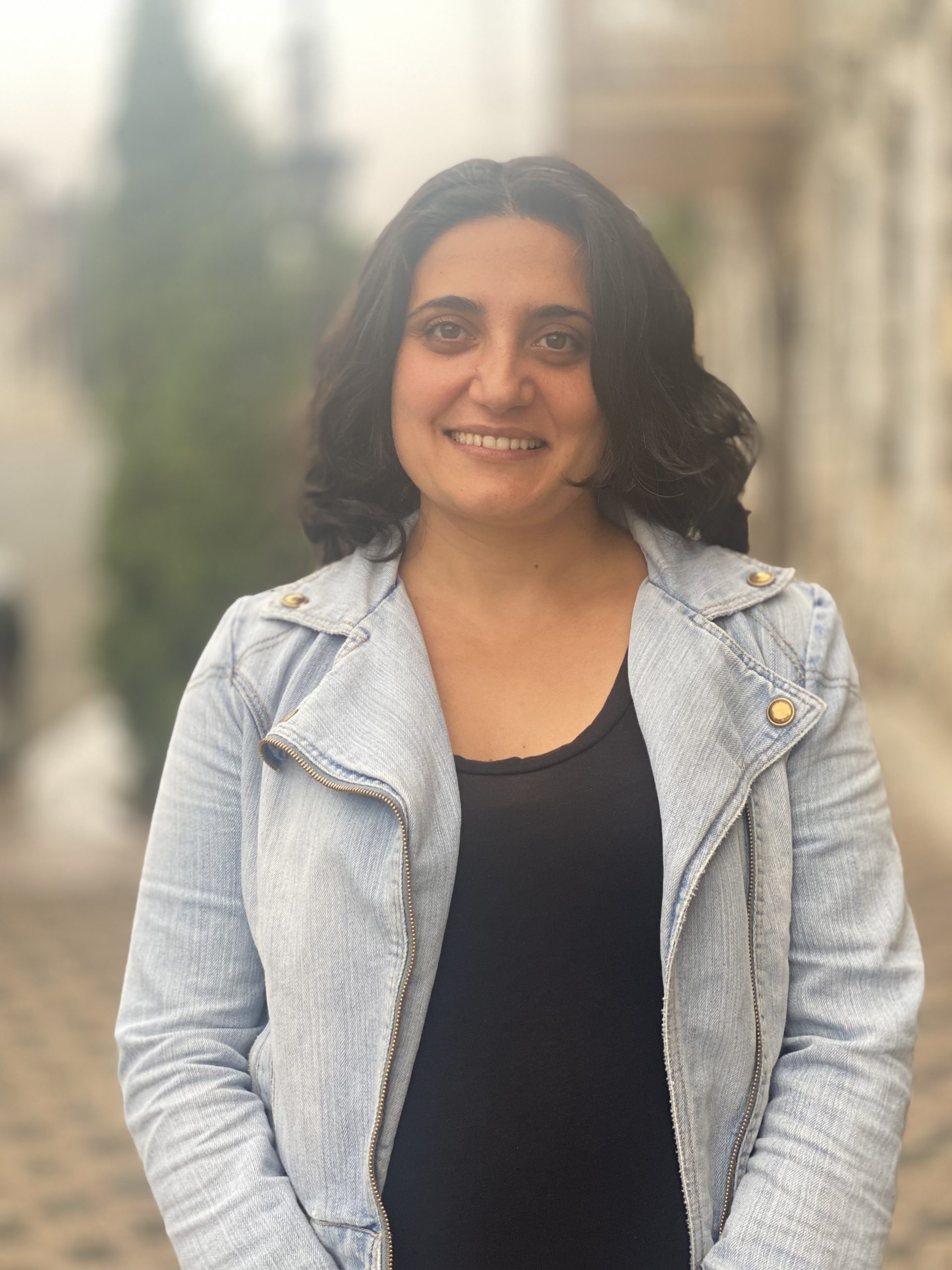
“Sometimes when I am looking through my archival footage, I feel that there is nothing that I have seen in reality… Sometimes I worry a lot that what I felt and what I saw I haven’t been able to film…
I remember in the hospital one brother had to inform his father that the other brother who was with him in the battle has died…
I saw parents who were watching the videos of the POW that has been tortured, thinking that they can find their lost sons… I was really listening to him, when he was looking at the video and talking with other parents…
I remember the voices of the animals in the villages that were getting evacuated, and mostly I remember the silent faces of the mothers in the shelters…silently praying.”
Helen Hakobyan, 44
Helen Hakobyan works as an economist and chief specialist in Martuni. When the war broke out, Hakobyan joined her husband (a physician) as a volunteer nurse to help him throughout the war. The city of Martuni is the most heavily devastated city in the war.
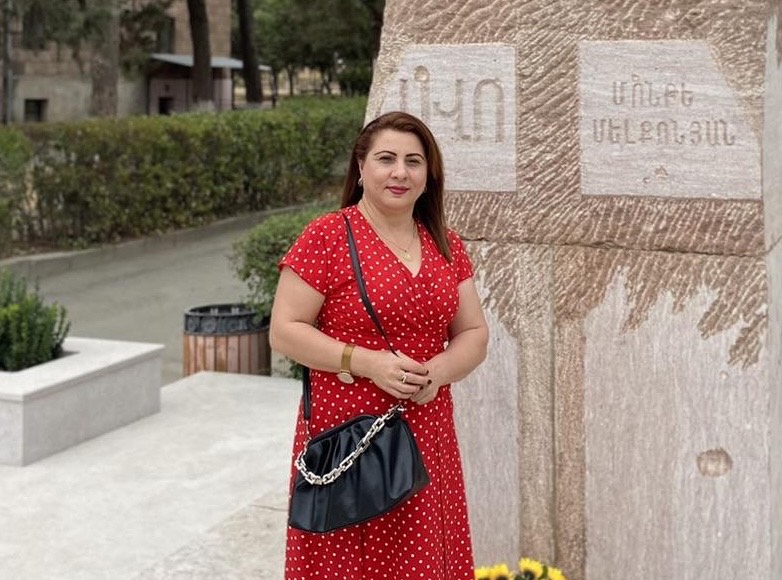
“The hardest moment was seeing scorched and dismembered bodies of soldiers; the smell of death that surrounded them is the same smell that I can smell even when I am asleep. When my brother fell into an ambush, I did not share my feelings with anyone. When he finally escaped, I knelt on the ground and gathered my strength.
You find strength and you don’t have a right to cry, because everybody looks at you. You don’t share the pain that’s deep in your soul with your husband, because you don’t want to weaken him by your weakness.
The first horror I witnessed was when the second horrible bombing occurred on the first of October in Martuni, resulting in many casualties. It seemed to me that the soldier who was in front of me was alive, but they took him to the morgue. His body was dismembered; he looked at me one last time and then passed away. It is impossible to forget those eyes…”
Hasmik Arushanyan, 63
Hasmik Arushanyan is a history teacher who stayed in the shelter during the war with her friends and relatives. With their hearts pounding, they waited impatiently for word from the battlefield about their sons and brothers.
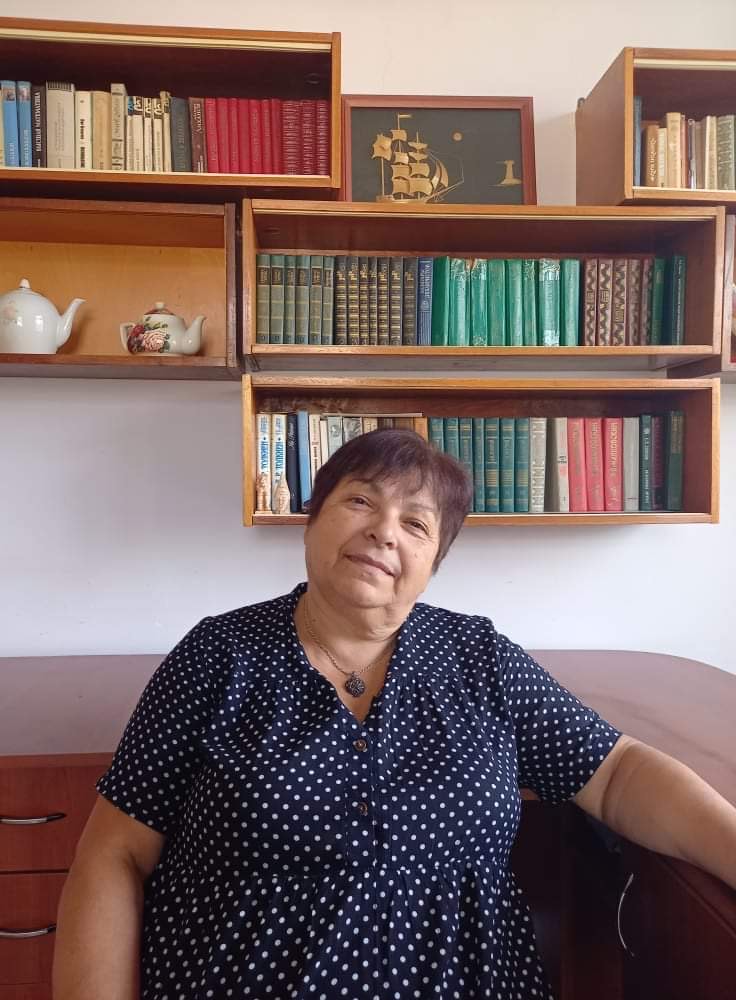
“When a phosphorus bomb was thrown in Isaac akhbyur, near Shushi, the forest caught on fire, and you could hear the pain and suffering of the animals: the bears roaring in agony and the wolves howling in torment. That moment was so hard for me. A day later we learned that my son’s combat vehicle was hit by a Bayraktar. For three days we had no news, but then finally he called.”
Isabel Dangourian, 40
Isabel Dangourian is a Syrian-Armenian refugee who has been living with her family in Stepanakert for eight years. During the war, she and her husband opened their Samra restaurant to all visitors. Dangourian would test positive for coronavirus, but she refused to go to Yerevan until her husband forced her to leave.
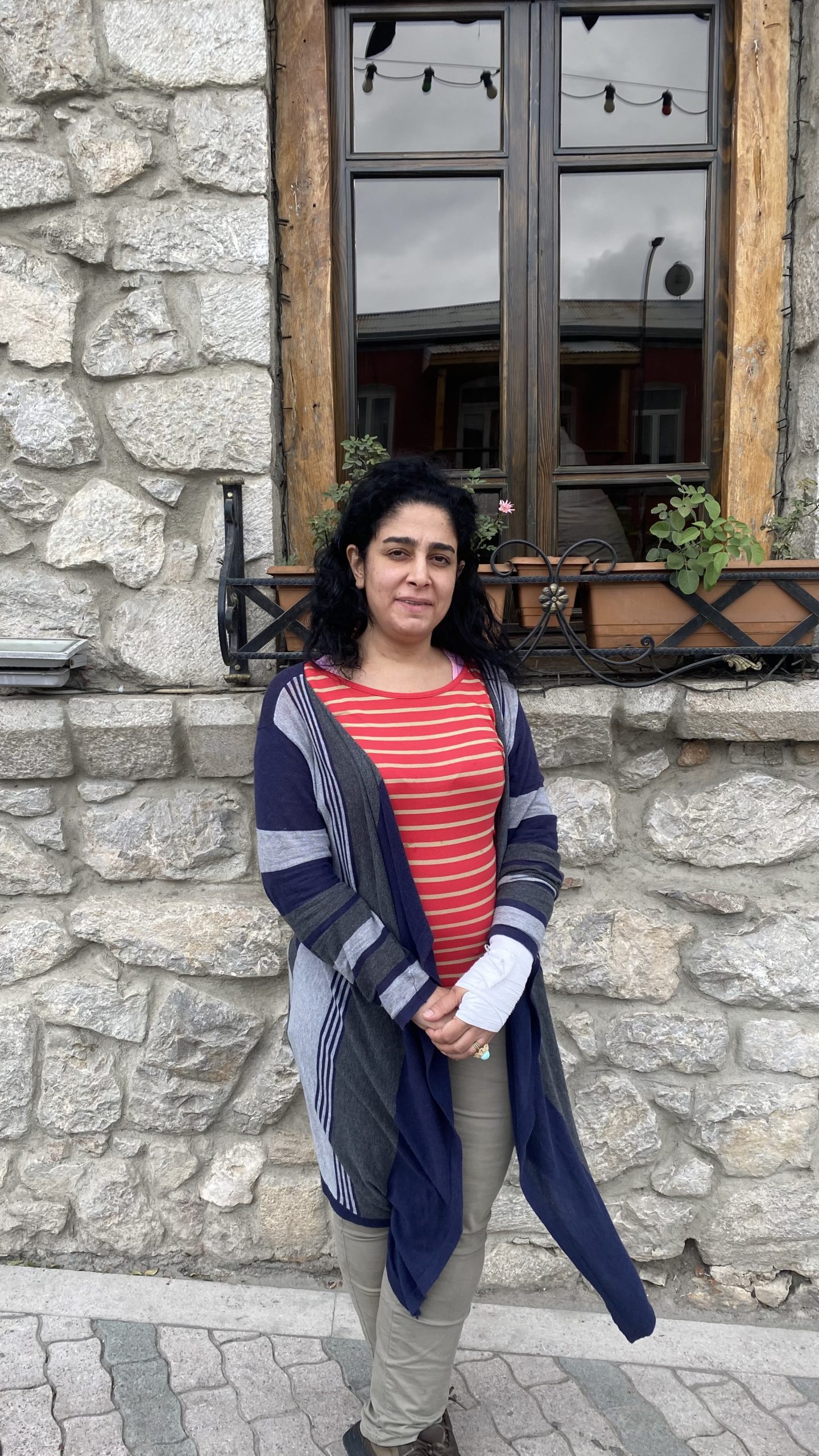
“The most touching thing was seeing a mother, under intense bombing, bid farewell to her own young son while whispering in his ear asking him to stay strong and wait for her return in Yerevan. And to be honest, it’s difficult to choose the most haunting or touching experience because [you] not only go through indescribable situations during war but also the consequences that come after it. Just when you thought there wouldn’t be anything else more extreme than you had witnessed, there comes another situation. For instance, lately, the stories that we have heard about people we know well were quite unbearable, and what’s worse is that there’s not much you can do about it other than accept it.”
Lara Sargsyan, 36
Lara Sargsyan is a member of the military from the city of Chartar. She served in Artsakh’s Defense Army for 12 years. During the war, she took part in the most crucial stages of war.
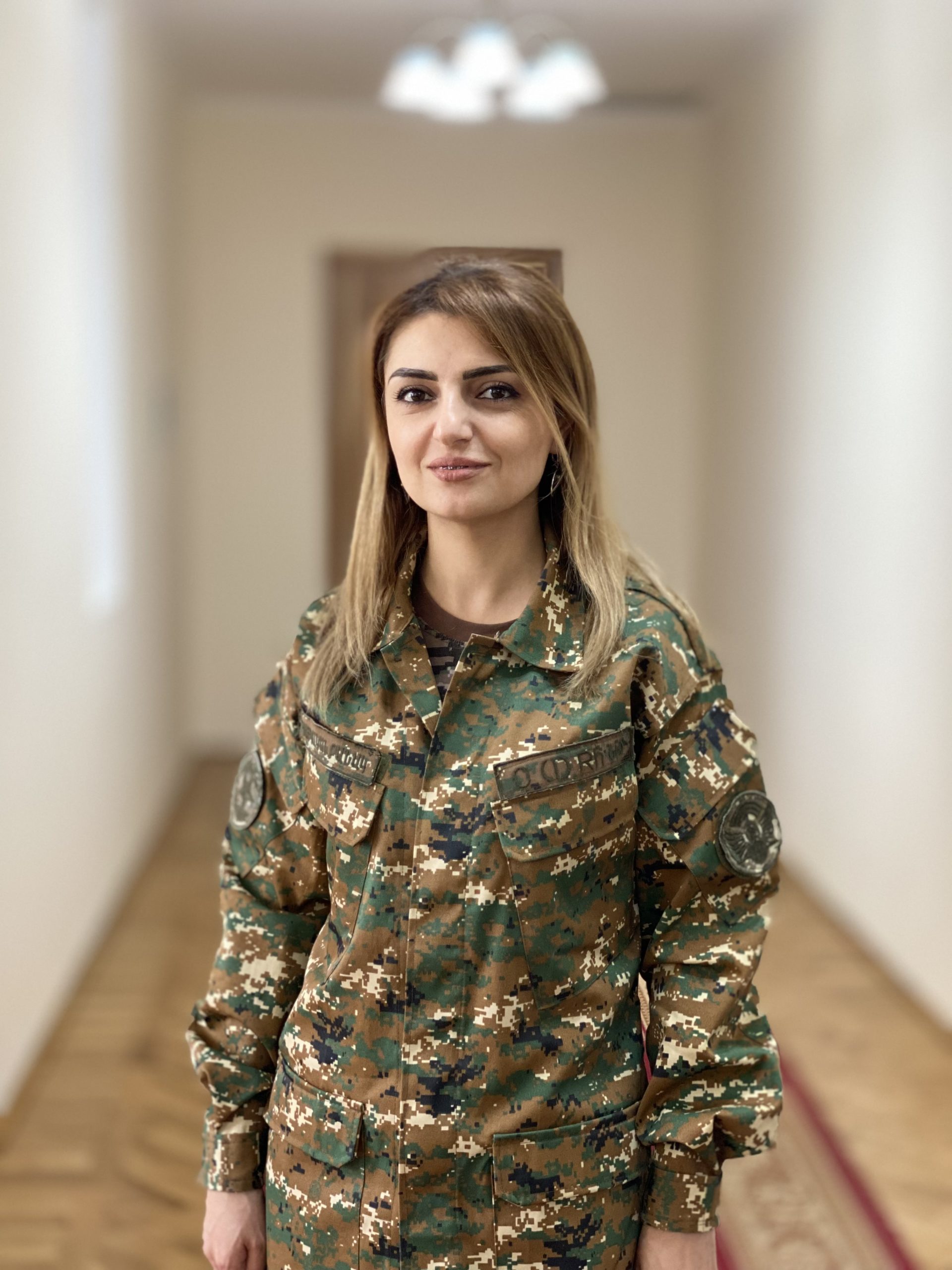
“The war is a disaster itself; within seconds everything changes inside you. What you considered important before, becomes meaningless from the first shot. In the most tense moments, you do not feel anything under the shells and missiles. You wait impatiently for the end of this nightmare. If you survive, you will continue what you have to do.
I have witnessed an elderly friend observing the demise of his junior comrade-in-arms by a missile explosion from a distance, but he does not want to believe it until the end; he keeps hoping to find him alive. Approaching under the shelling and finding the dead, he is not confused or scared, but on the contrary, he continues the fight more persistently.
The most difficult moment during the war in my case was me hearing on the radio that the next attack would be on my brother’s positions, and I understood that these would be hard battles. I don’t even want my enemy to have that feeling. I could not do anything to help and I was just praying to God. I’m still haunted.
I prayed that at least the severely wounded would be saved, and if it is not possible, then that they would not suffer when dying.”
Lika Zakaryan, 27
Lika Zakaryan is a journalist from Stepanakert. Throughout the war, she filed reports from the most heavily targeted areas in the region. She considers herself a child of war and kept a diary, sharing her feelings as an eyewitness.
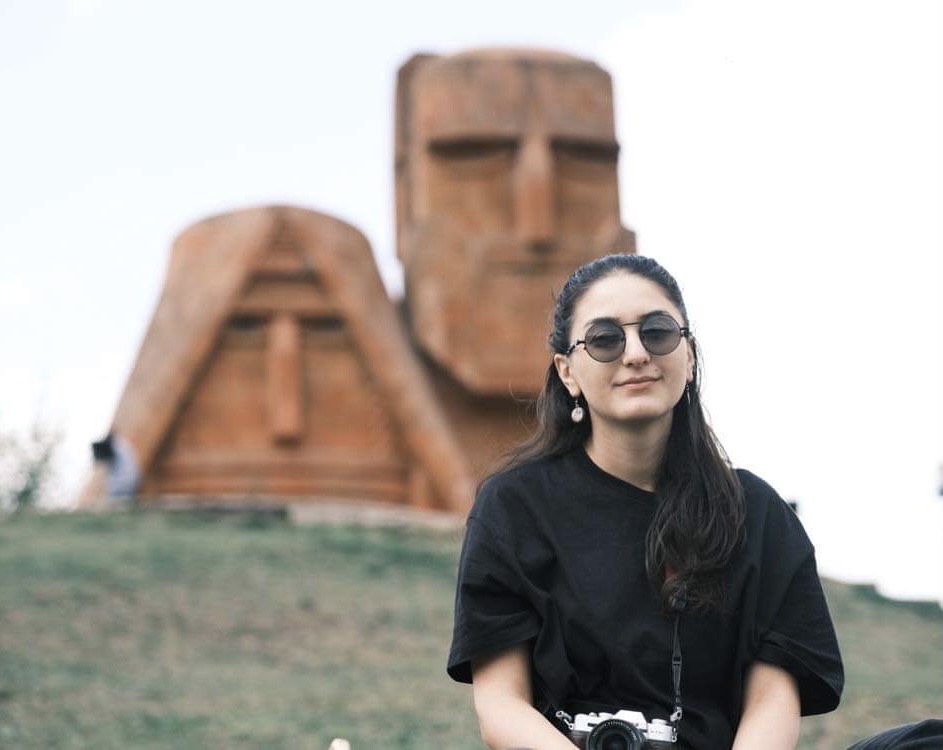
“The war made us experience a lot, but I will never forget one thing. Once, we visited one of the basement shelters in Stepanakert and met many people. It was the basement with a handful of children still in Stepanakert, children who were still in Artsakh.
A woman, Elmira, was making tanav – a national Armenian soup. She served us all. We drank the hot tanav we missed and we talked. She told the stories of all the people living in the basement, who have children, brothers, friends and relatives on the frontline. At the very end of the basement, a man was sitting in front of the TV, his head hanging down, but still focused on the TV.
And a little farther, a woman was sitting. ‘Her son has been living in Russia for seven years,’ said Elmira. ‘Who told you to come back?’ ‘Is he back?’ I asked. ‘Yes. The next day of the war he was already in Stepanakert. His parents had not seen him for seven years. He entered the house, kissed his mother and father and said that he was going to war. That was the way he went’ ․․․ ‘Is there no news?’ ‘No.’ And the father and mother, who lived in the distant shadow of their son, are sitting everyday waiting for the news. At the same time, they read all the names on TV, fearing that his name may be on that list․․․ At that very moment they heard… They heard the name of their son, which came out from the TV… Not to see your child for seven years, send him for a better life and get his name in the list of dead… I will never forget their cries…”
Nune Arakelyan, 50
Nune Arakelyan is a lecturer of Russian language and literature at Artsakh State University. She could not leave her only son and other relatives on the battlefield and leave Artsakh, so she remained in the shelter during the war, taking care of the elderly who were forcibly displaced from their villages.
“Old people were brought to our basement from the villages in which the fighting was going on. I will not forget this old woman whose son had been martyred in the last war; her grandchildren were participating in this war, and she was so brave. She did not lose her heart; instead she consoled and encouraged everyone.
When I was working as a volunteer in a hotel, I saw an elderly lady there. She was a professor at the university. She said that she came to Artsakh to help, to be useful. But the most touching thing was when my son called from the front. I screamed in hysteria that I will go to him myself and bring him home for at least one day. And he replied that if I dare do it his fellow soldiers would lose respect for him, and he would lose respect for himself and for me.”
Kima Gabrielyan, 90
Kima Gabrielyan is a violinist who moved from Yerevan to live in Shushi (now under Azerbaijani control).
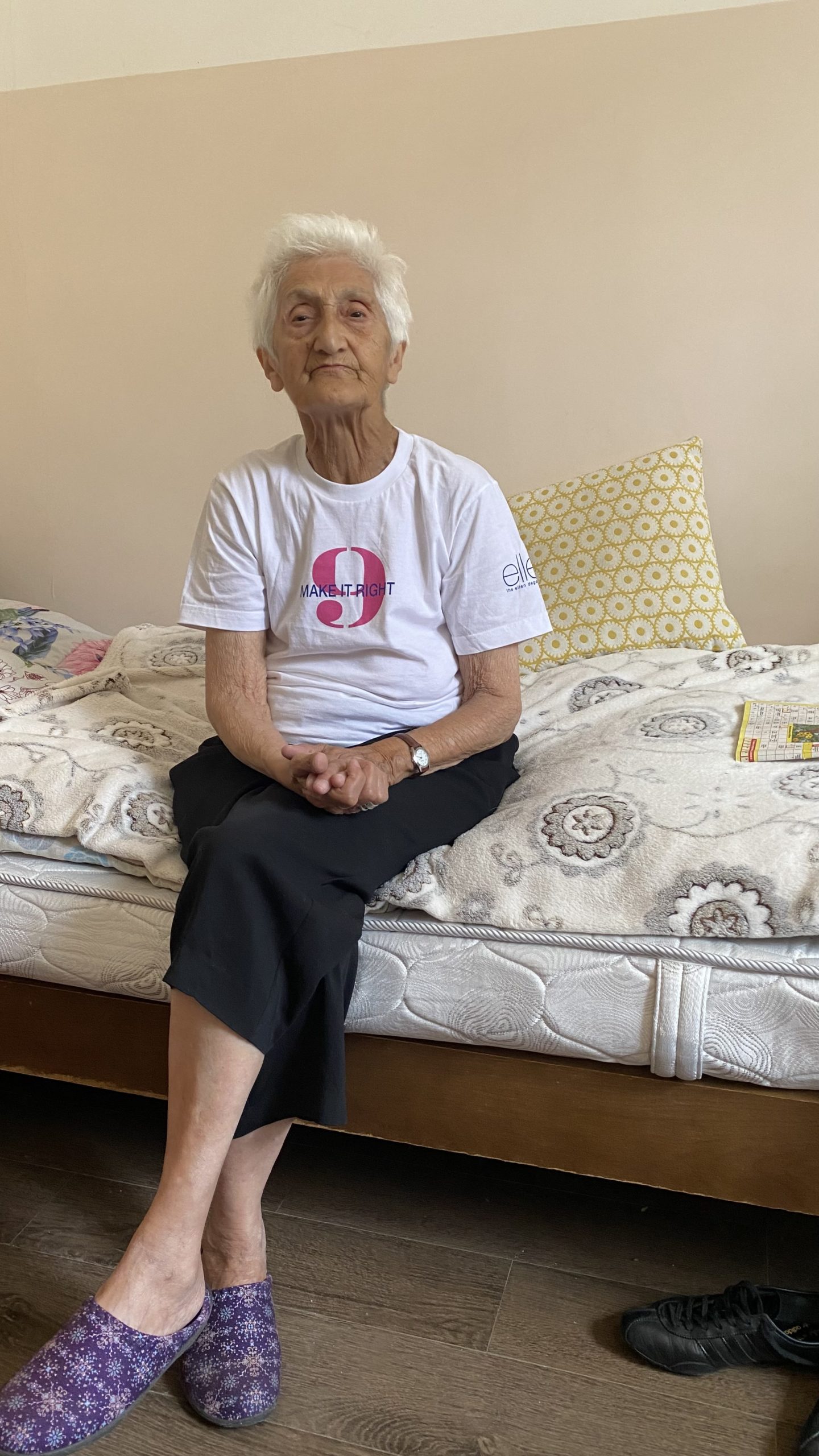
She worked at the Stepanakert Music School as a violin teacher. After leaving her home and her son’s grave under enemy control, she now lives in a Stepanakert nursing home. Hundreds of forcibly displaced families live here. Even at this age, she continues to play the violin to teach displaced children.
“I was shocked by the loss of an entire generation, that so many young people were killed. All of them were 18 to 20 years old.
A whole generation is gone. What will we do? We waited 20 to 25 years, raised these children and lost a whole generation. I cried a lot. Although I am 90 years old, I could see perfectly, but this pain blinded me… I’m not a politician to answer the question of whether the land or the victims. Maybe they should have thought. I am not saying to give everything to the Turks; I am not saying this. We have dignity, we are Armenians and we must defend our land, but if such a choice was made, we must think. Where is our future when young people who are to create this future are killed? What are we going to do now? I don’t know…
And now I am disturbed by the thought that I left my son’s grave in Shushi. On the last day when Shushi was handed over, I was kneeling at my son’s grave in Shushi when our soldiers hugged me and took me away from it, put me in a car and drove away. And now my only wish is to go and get a handful of soil from my son’s grave.”
These women still live in Artsakh. Their lives, however, have transformed from one wartime period to another, where uncertainty steals their dreams. Surviving three wars and always expecting another one, the only thing they want is peace. At the same time, most of them are ready to take a gun and defend their motherland. They realize that they are to bear the burden of defeat, encourage their husbands, sons and the ones they love with their wisdom and charisma. These women had the courage to give birth and bring new lives into this world under the terrifying sounds of explosions. They are the powerful key in educating generations, who will live and reanimate the land.



Thank you so much for documenting these stories and allowing us to come closer to, better understand, and share the personal pain of our sister compatriots so far away. I admire and am inspired by their bravery, dedication to our homeland, and their deep love and humanity.
Thank you for your encouragement
An important article. As it points out, Armenian women have always and will continue to play a critical role in Artsakh. The increased visibility of this contribution is important education
for all of us. Thank you.
Thank you Siranuysh for this article, written with great sensitivity. As a woman who has seen many young and senseless deaths in a civil war in Lebanon, I feel the pain and sorrow tattooed in the minds and hearts of all your subjects. Their bravery, their stoicism and resilience, are the qualities that have raised a nation beyond the ashes of a genocide.
Dear Siranuysg, I too thank you for the article. After reading it I shared it with everybody I know. What resonated with me was the unbelievable bravery of the women you interviewed and also Hasmik Arusjamuan describing the agony of the animals of the forest subjected to the fire from the phosphorous bomb thrown by the Azeris. Heeartrending in the extreme.
It is hard to deal with an enemy that has no respect for life; human or animal. Armenia will survive as long as there are women in the country with such resilience.
Thank you for your encouragement Ellen jan
Well done to all these patriotic ladies. However, to hold back the Turks/Tatars Armenians need a dramatic cultural shift, from peaceful decent human beings, to savage, merciless warriors, like but better than our surrounding enemies. There is no way to talk our way our of the jaws of these revolting hyenas, and if we allow the coward and traitor Pashinyan to ( with Russia ) sell out Nagorno Karabakh , it won’t be long before Syunik is gone and that would spell the end of Armenia as a country, the Garden of Eden, forever.
Brave ladies of patriotic genes…congrats …
You are the true mothers of our generation …
we lost >5000 sons
Your duty now is to replace our losses
to make us in some way happy …
Partly… better than none …
We are all waiting for your good news…
Dr. Sylva Portoian
Their stories bring me to tears. All I can say is as a canadian living in the diaspora that I feel like I have failed these women, and I am so deeply sorry for their losses. Thank you for writing this article. Kima’s words speak volumes. The land or the people. I try to be thankful every day for my family and their health, and I promise that the memory of the fallen soldiers will not be forgotten.
The woman of Artsakh and Armenia are true heroes- our mothers, sisters, daughters, etc.
Thank you for sharing these stories-sadly that aren’t so unique when it comes to war.
War is blind to gender bias-it effects us all.
The question now becomes-how to recover from this tragedy-and recoup a lost generation? God bless all of these heroic woman, and may God give you continued strength. Don’t let your male dominated society deter you. Encourage your daughters to get involved in politics, or in whatever field they chose to help their nation.
Yesterday was the anniversary of the Sandy Hook shooting. Michael Moore sent out a blog noting that every single mass shooting has gotten carried out by a man. Indeed, the shooter often gets called a gunman (never once have we heard gunwoman).
It’s probably worth noting that every brutal despot in history has encouraged productions depicting women as obedient, subservient wives. Maybe the women don’t get depicted as absolute doormats for their husbands, but how many fascist propaganda films have you seen portraying women who stand up to men?
As Sally Field said when accepting an award, “If mothers ruled the world, there would be no…wars.”
These are all amazing and touching stories that show the bravery and resilience of our nation. The dedication to family and homeland these women have shown is truly admirable. I’m sure there are many others just like these women whose stories still need to be told. They need to be recognized and their work and dedication appreciated.
This criminal, deceptive and despicable coward enemy, fascist pseudo-Turkish Azerbaijani Tatar tribe, remnants of Turco-Mongol invaders of the region from the centuries past, could not do anything against us for the last three decades despite all their wealth and man power. They tried many times and failed miserably each and every time and with major loses and massive casualties. They felt the unity and the strength of the Armenian nation on their skins and during the first war of liberation some thirty years ago in particular. Unable to accomplish anything, they bought and paid for this war with their petrodollars just like they have been paying for everything. They employed the criminal services of half dozen terrorist states, among them the notorious genocidal NATO member terrorist Turkey, while our only “ally” in the region, double-crossing and backstabbing Russia, and the so-called spineless self-serving “Christian” west, having been given guarantees the oil & gas pipelines carrying energy to their neck of the woods won’t be targeted, stood aside and watched these Muslim Turkish and fatherless devil-worshiping Arab jihadist terrorists invade parts of our homeland with sophisticated NATO weapons and others supplied by terrorist Pakistan and morally-bankrupt and hypocritical Zionist state of Israel.
We must find strength to rise up and crush this enemy once and for all. We must seek vengeance on all those foreign forces who directly and indirectly participated in this war on the side of our coward enemy. But we must clean the homeland from internal enemies first. They are responsible for allowing this war to take place without any or adequate preparation. They failed to modernize the army with new and sophisticated weaponry. Instead they got involved in corruption, nepotism and theft. They failed to mobilize the nation. They took steps that weakened the army. They spent hundreds of millions of dollars on weapons they never used. They could have but failed to invest in modern military systems and UAVs (drones) to protect the airspace which turned out to be our Achilles heel that resulted in such catastrophe despite all our other strengths.
We need a very strong and a TRUE patriot for a leader to lead the country and not what we have now, a weak, inexperienced, unpatriotic and defeatist leader. We need to do away with leaders who serve the interests of foreign leaders and are subservient to them. We need a leader who is dedicated to the nation and its interests and to the security of the homeland above all else. With the right leadership I am convinced and have high hopes we can reverse the situation we are in. If there is a will there is a way.
These are all my sentiments too, or more accurately used to be, with the difference that now I have changed my mind about the west and NATO. From where I’m standing, RUSSIA CAN GO TO HELL because this entire debacle is based on Russian, not American or NATO or for that matter Turkish, policy.
And make no mistake, Pashinyan the Prime Traitor of Armenia is a Russian stooge not a “western agent”. Russia wants everyone to believe that “if you cross Russia this is what happens” – a classic psyop. The whole plan to hand away Artsakh was scripted from the beginning with the three rats of the region, Putin, Aliyev and Erdogan.
Armenia has been getting abused, mocked and thrown to the wolves at the hands of “Mother Russia” for a century, and still we have Armenians claiming that “Armenia must get closer to Russia now”. What a joke. As if it wasn’t completely owned by Russia already. My message to Armenia is, if that is the case, then just give up trying to be a country already and escape to wherever the kabob pastures are, like you have been doing since 1990.
The bottom line is this: don’t expect the USA to come to Armenia’s rescue. The USA knows Armenia is Russia’s domain. And Russia in turn back-stabbed Armenia instead of making it stronger, like it has been doing for a century. That’s how I summarize this whole thing.
The only way I see Armenia can become a real country is, Armenia must establish an openly anti-Russia/pro-USA mission as one of its political parties or movements. Russia must suffer consequences of helping Turkey and Azerbaijan against Armenia. Only once this mechanism exists will the Russian belligerence and chauvinism against Armenia come to a halt. The mission does not necessarily have to be to get Armenia to the American side. Just that such an option must be established. It must be the mission of Armenia, that if we lose Armenia, we must make sure Russia goes down with it. This is the only way I see Armenia as a real nation.